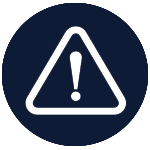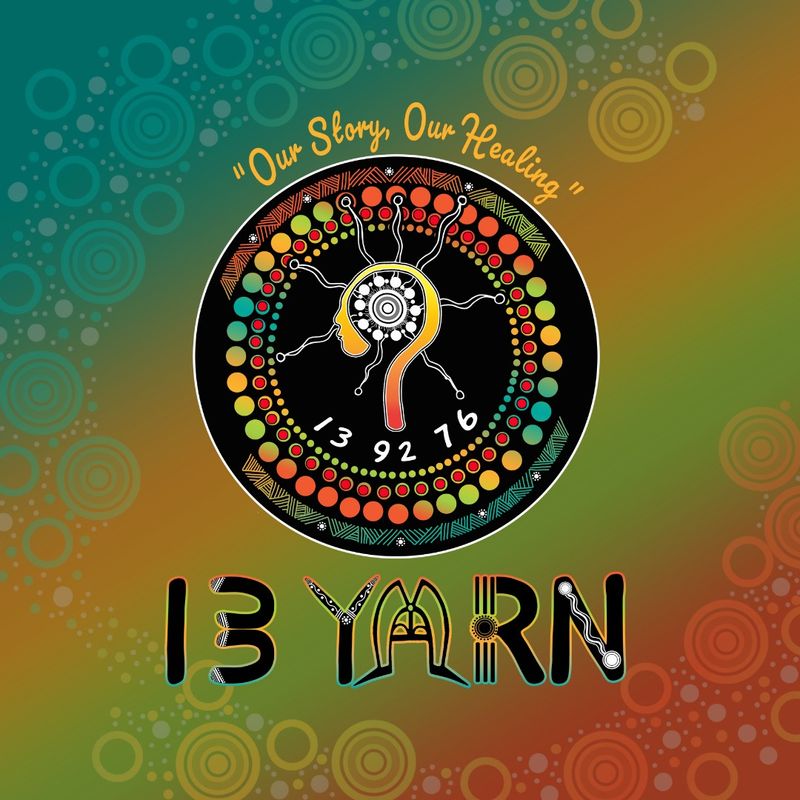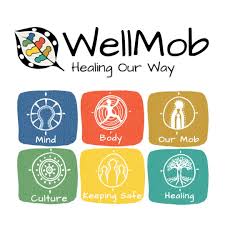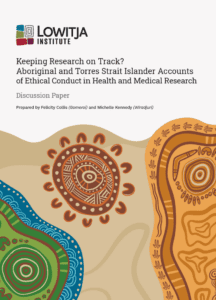
Material and resources regarding First Nations peoples and cultures has historically been created and recorded by non-Indigenous people and may not have had the input of First Nations peoples themselves. As a result, this material may contain cultural inaccuracies and misinterpretations, or words and descriptions which could be considered insensitive, outdated and/or offensive in today's context.
 Aboriginal and Torres Strait Islander people should be aware that the resources within this guide may contain images, voices, or names of deceased persons.
Aboriginal and Torres Strait Islander people should be aware that the resources within this guide may contain images, voices, or names of deceased persons.
 The college welcomes your feedback regarding any potential omissions, misrepresentations, or inaccuracies regarding First Nations peoples, as well as suggestions for additional resources.
The college welcomes your feedback regarding any potential omissions, misrepresentations, or inaccuracies regarding First Nations peoples, as well as suggestions for additional resources.










CPD cultural safety resources
In these activities, participants will explore culturally different expectations for clinical communication and behaviour and help to develop strategies for responding effectively when expectations differ between colleagues, patients and their family members/carers. Being able to identify these diverse cultural perspectives will allow you to understand varying medical beliefs and behaviours, and where necessary, to guide others in adapting to the Australian or New Zealand context.
 Visit the Cultural safety section of the ANZCA & FPM CPD Program resources guide for a complete list of recommended activities and resources.
Visit the Cultural safety section of the ANZCA & FPM CPD Program resources guide for a complete list of recommended activities and resources.
 Plus other resources found in this library guide
Plus other resources found in this library guide
CPD Value: CPD participants may claim these activities.
The teaching and learning cases have been developed for use in conjunction with the 2013 curriculum.
Four cases (7, 8a, 8b, 9) have been specifically developed to support case-based discussions involving indigenous Australian and Maori patients.
 The National Scheme’s Aboriginal and Torres Strait Islander Health and Cultural Safety Strategy 2020-2025
by
This document, written by ABSTARR
Consulting, sets out a strategic direction for
Ahpra and the National Scheme in Aboriginal
and Torres Strait Islander health. The strategic
direction was guided by key outcomes and
recommendations made at the February 2017
workshop. Participants included Aboriginal
and Torres Strait Islander health organisations,
academics and stakeholders, Ahpra’s Agency
Management Committee Chair, Ahpra
Chief Executive Officer (CEO) and staff,
and representatives of National Boards and
Accreditation Authorities (see Appendix 1).
This strategy will align with and influence the
broader National Scheme and Ahpra strategy
review being undertaken in 2019.
The National Scheme’s Aboriginal and Torres Strait Islander Health and Cultural Safety Strategy 2020-2025
by
This document, written by ABSTARR
Consulting, sets out a strategic direction for
Ahpra and the National Scheme in Aboriginal
and Torres Strait Islander health. The strategic
direction was guided by key outcomes and
recommendations made at the February 2017
workshop. Participants included Aboriginal
and Torres Strait Islander health organisations,
academics and stakeholders, Ahpra’s Agency
Management Committee Chair, Ahpra
Chief Executive Officer (CEO) and staff,
and representatives of National Boards and
Accreditation Authorities (see Appendix 1).
This strategy will align with and influence the
broader National Scheme and Ahpra strategy
review being undertaken in 2019.
 Cultural Safety Training Plan for Vocational Medicine in Aotearoa
by
This document presents a plan for cultural safety training that medical colleges can employ in the development of their own cultural safety training programmes for college registrar training and in continuing professional development (CPD) with college fellows.
Cultural Safety Training Plan for Vocational Medicine in Aotearoa
by
This document presents a plan for cultural safety training that medical colleges can employ in the development of their own cultural safety training programmes for college registrar training and in continuing professional development (CPD) with college fellows.
 LIME Good Practice Case Studies: Volume 4 2017
by
The LIME Good Practice Case Studies Resources showcase examples of good practice in Indigenous medical and health education from schools and specialist colleges across Australia and Aotearoa/New Zealand.
LIME Good Practice Case Studies: Volume 4 2017
by
The LIME Good Practice Case Studies Resources showcase examples of good practice in Indigenous medical and health education from schools and specialist colleges across Australia and Aotearoa/New Zealand.
 Perioperative Mortality in New Zealand: Fifth report of the Perioperative Mortality Review Committee (the POMRC). Report to the Health Quality & Safety Commission New Zealand
by
This report presents information on perioperative mortality in New Zealand during 2009–2013 for two new clinical areas: 30-day mortality following operations and procedures under general anaesthesia and day-of-the week mortality. As part of the POMRC’s continued surveillance of perioperative mortality over time, rates for a number of clinical areas and procedures included in previous reports are presented here for 2009–2014.
Perioperative Mortality in New Zealand: Fifth report of the Perioperative Mortality Review Committee (the POMRC). Report to the Health Quality & Safety Commission New Zealand
by
This report presents information on perioperative mortality in New Zealand during 2009–2013 for two new clinical areas: 30-day mortality following operations and procedures under general anaesthesia and day-of-the week mortality. As part of the POMRC’s continued surveillance of perioperative mortality over time, rates for a number of clinical areas and procedures included in previous reports are presented here for 2009–2014.


 AIATSIS Code of Ethics for Aboriginal and Torres Strait Islander Research
by
The purpose of the AIATSIS Code of Ethics for Aboriginal and Torres Strait Islander Research (the AIATSIS Code or this Code) is to promote ethical and responsible practice in Aboriginal and Torres Strait Islander research in Australia, to increase the contribution of Indigenous knowledge to Australian research, to ensure research has a positive impact for Aboriginal and Torres Strait Islander peoples, and to continuously improve the quality and standards of research in this area.
AIATSIS Code of Ethics for Aboriginal and Torres Strait Islander Research
by
The purpose of the AIATSIS Code of Ethics for Aboriginal and Torres Strait Islander Research (the AIATSIS Code or this Code) is to promote ethical and responsible practice in Aboriginal and Torres Strait Islander research in Australia, to increase the contribution of Indigenous knowledge to Australian research, to ensure research has a positive impact for Aboriginal and Torres Strait Islander peoples, and to continuously improve the quality and standards of research in this area.
 Ethical Conduct in Research with Aboriginal and Torres Strait Islander Peoples and Communities: Guidelines for Researchers and Stakeholders
by
Ethical conduct in research with Aboriginal and Torres Strait Islander Peoples and communities: Guidelines for researchers and stakeholders provides a set of principles to ensure research is safe, respectful, responsible, high quality and of benefit to Aboriginal and Torres Strait Islander people and communities.
Ethical Conduct in Research with Aboriginal and Torres Strait Islander Peoples and Communities: Guidelines for Researchers and Stakeholders
by
Ethical conduct in research with Aboriginal and Torres Strait Islander Peoples and communities: Guidelines for researchers and stakeholders provides a set of principles to ensure research is safe, respectful, responsible, high quality and of benefit to Aboriginal and Torres Strait Islander people and communities.
 Keeping Research on Track? Aboriginal and Torres Strait Islander Accounts of Ethical Conduct in Health and Medical Research: Discussion Paper
by
Keeping Research on Track? Aboriginal and Torres Strait Islander Accounts of Ethical Conduct in Health and Medical Research: Discussion Paper
by
 Keeping Research on Track II
by
Keeping research on track II was developed to provide advice on how the values and principles outlined in Ethical conduct in research with Aboriginal and Torres Strait Islander Peoples and communities: Guidelines for researchers and stakeholders can be put into practice in research.
Keeping Research on Track II
by
Keeping research on track II was developed to provide advice on how the values and principles outlined in Ethical conduct in research with Aboriginal and Torres Strait Islander Peoples and communities: Guidelines for researchers and stakeholders can be put into practice in research.
 Indigenous Evaluation Strategy
by
The Indigenous Evaluation Strategy provides a whole-of-government framework for Australian Government agencies to use when selecting, planning, conducting and using evaluations of policies and programs affecting Aboriginal and Torres Strait Islander people.
The Strategy puts Aboriginal and Torres Strait Islander people at its centre. It recognises the need to draw on the perspectives, priorities and knowledges of Aboriginal and Torres Strait Islander people if outcomes are to be improved.
Please note: Aboriginal and Torres Strait Islander people are advised that this paper may link to other websites which contain names, images and voices of deceased people.
Indigenous Evaluation Strategy
by
The Indigenous Evaluation Strategy provides a whole-of-government framework for Australian Government agencies to use when selecting, planning, conducting and using evaluations of policies and programs affecting Aboriginal and Torres Strait Islander people.
The Strategy puts Aboriginal and Torres Strait Islander people at its centre. It recognises the need to draw on the perspectives, priorities and knowledges of Aboriginal and Torres Strait Islander people if outcomes are to be improved.
Please note: Aboriginal and Torres Strait Islander people are advised that this paper may link to other websites which contain names, images and voices of deceased people.
 Māori Health Advancement Guidlines
by
The HRC has introduced a new Māori Health Advancement criterion as part of its assessment process. These guidelines will support health researchers in describing how their proposed research contributes to Māori health advancement.
Māori Health Advancement Guidlines
by
The HRC has introduced a new Māori Health Advancement criterion as part of its assessment process. These guidelines will support health researchers in describing how their proposed research contributes to Māori health advancement.
 Guidelines for Researchers on Health Research involving Māori
by
These Guidelines intend to assist researchers undertaking biomedical, public health or clinical research involving Māori participants or research on issues relevant to Māori health. It is expected that all those who undertake research involving Māori will read these Guidelines prior to making a submission to an ethics committee.
Guidelines for Researchers on Health Research involving Māori
by
These Guidelines intend to assist researchers undertaking biomedical, public health or clinical research involving Māori participants or research on issues relevant to Māori health. It is expected that all those who undertake research involving Māori will read these Guidelines prior to making a submission to an ethics committee.
 Te Ara Tika Guidelines for Māori Research Ethics: A Framework for Researchers and Ethics Committee Members
by
This document outlines a framework for addressing Māori ethical issues within the context of decision-making by ethics committee members. It draws on a foundation of tikanga Māori (Māori protocols and practices) and will be useful for researchers, ethics committee members and those who engage in consultation or advice about Māori ethical issues from a local, regional, national or international perspective.
Te Ara Tika Guidelines for Māori Research Ethics: A Framework for Researchers and Ethics Committee Members
by
This document outlines a framework for addressing Māori ethical issues within the context of decision-making by ethics committee members. It draws on a foundation of tikanga Māori (Māori protocols and practices) and will be useful for researchers, ethics committee members and those who engage in consultation or advice about Māori ethical issues from a local, regional, national or international perspective.
Quick links
About ANZCA
Copyright © Australian and New Zealand College of Anaesthetists.